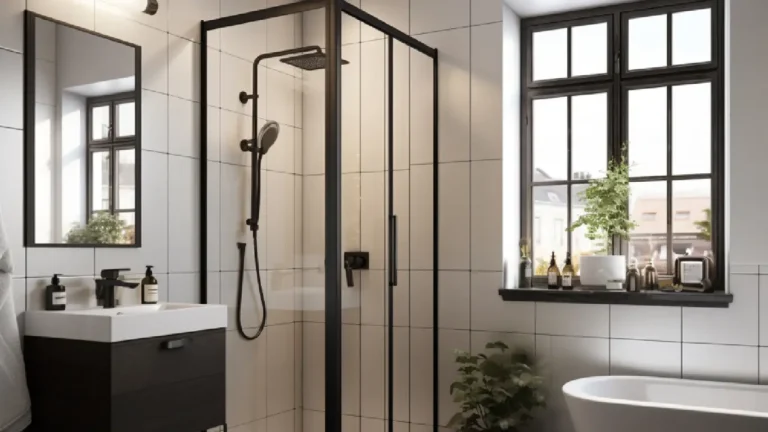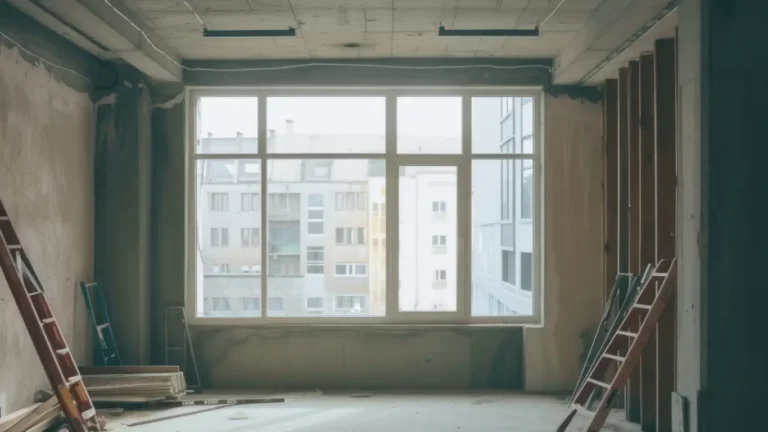Nowadays, glass partition walls have become an inevitable part of any modern office layout, helping optimize workspaces and enhance productivity. Glass partitions can bring many advantages, such as opening up a layout, letting the light flow throughout, and being architecturally striking.
Below, we explore these partition options and highlight their advantages, along with some excellent ideas for glass partition walls for office spaces.
What are Glass Partition Walls?
Glass partition walls are considered a popular architectural element and consist of glass-like panels or vertical glass. They’re a modern and elegant way to separate spaces while maintaining an open and airy feel.
The glass panels are installed to divide rooms while still allowing light to flow through. Tempered glass is typically used in glass wall partitions, whose thickness can range from 3/8 to ½ inch. They can be secured to different surfaces using clamps or U-channels.
Glass partitions also vary in the number of required glasses, size, angle, and whether they require a door. That’s why they’re considered the most flexible and easy-to-use option in many settings.
Lastly, glass partition walls can be framed or frameless, fixed or movable, and can be used in offices, homes, bathrooms, or any other spaces.
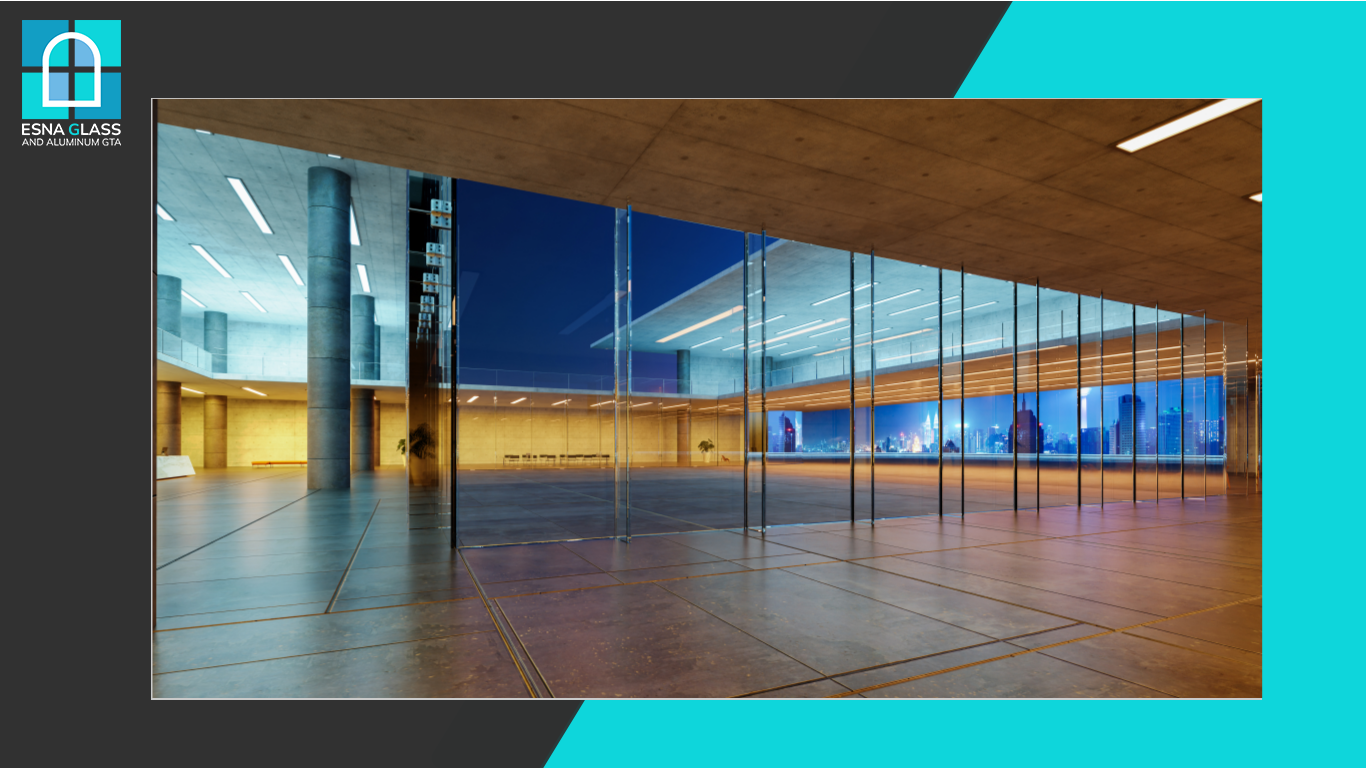
The Advantages of Glass Partition Walls
- Thanks to their opacity and transparency, glass partition walls allow light to easily flow throughout the workspace, creating a bright and spacious environment while providing increased transparency.
- The use of frameless glass walls considerably reduces the need for additional illumination.
- They are the most cost-effective long-term solution compared to standard building materials, such as plasterboard or drywall.
- Unlike sheetrock, glass partition walls offer less permanent and more movable, flexible options.
- Glass partitions enhance the sense of connectedness and openness.
- One of the incredible features of commercial glass wall systems is their scalability.
- Clients and workers can be aware of whom they’re doing business with.
- To meet various requirements or needs, demountable glass partitions may be the best option for reconfiguration and relocation.
Partition Walls: Different Types of Glass
The glass you choose for partition walls gives you a chance to personalize your space and architectural design. Here are some of the main glass used in the majority of glass room dividers.
Clear Glass
One popular choice for glass wall systems is to use clear glass. Clear glass offers significant transparency and consists of tempered glass, allowing natural light to pass through while separating places and creating a clear line of demarcation between divided spaces.
Clear glass is typically used in homes to create divided rooms within a large living space or to make a portion of the living space a home office, toy room, or other desired area.
Clear glass walls can also be used in offices to provide employees with the space they may need while still keeping the whole space open and encouraging collaboration among employees.
Other types of glass
Low-Iron Glass: Low-iron glass is a type of tempered glass that provides a higher level of clarity compared to standard glass. Low-iron glass is known for its reduced green tint, which is often visible near the edges of regular glass. Low-iron glass is the perfect choice for those who seek a pristine and ultra-clear appearance for their glass partition walls, as the ultra-clear appearance of these glasses can make any room feel spacious and expensive.
Patterned Glass: Patterned glass is a versatile option for glass walls, as it can be used to divide spaces while allowing light to flow through. It offers a range of designs, from subtle to bold, adding texture and character to the glass. Patterned glass is suitable for many spaces, including homes, offices, and other places, from residential to commercial settings.
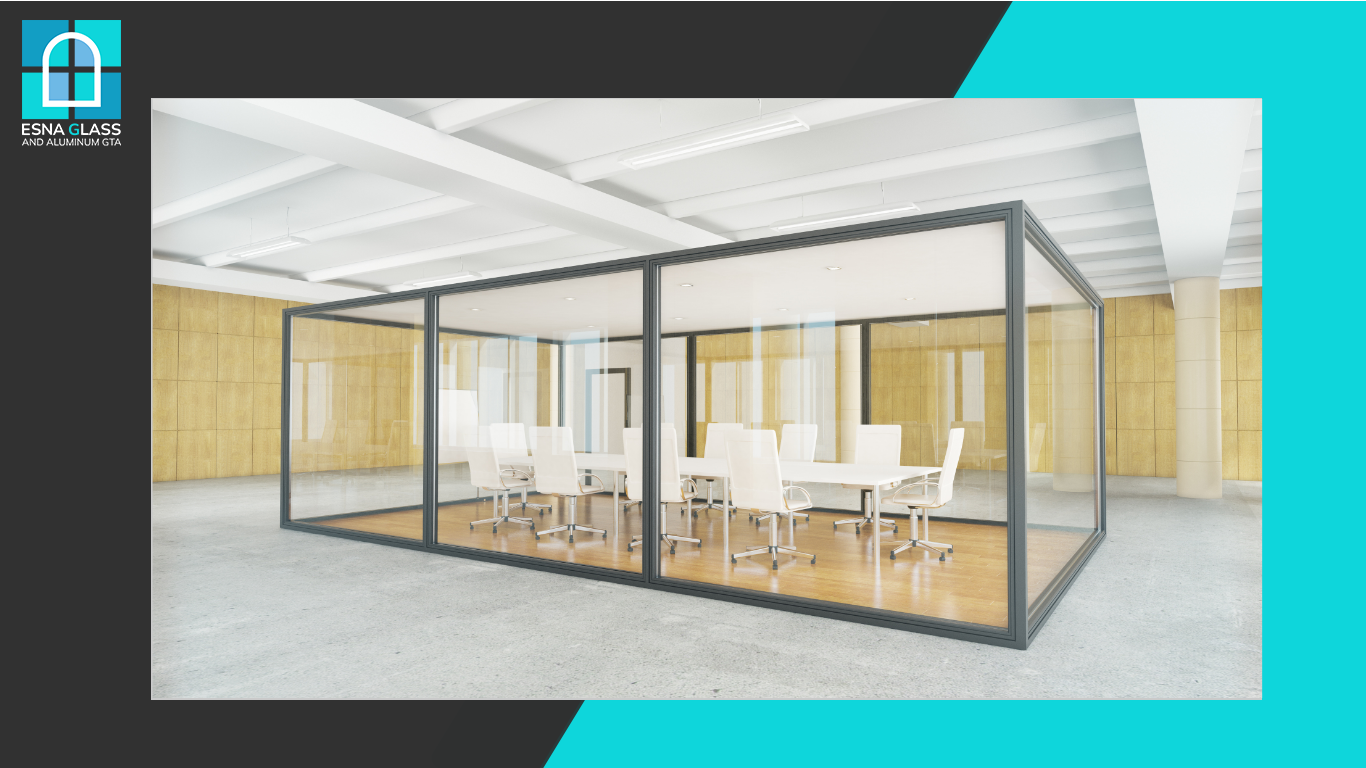
Acid-etched Glass or Frosted Glass: Frosted glass (acid-etched glass) is a classical option for glass wall systems, giving the privacy you’d like while still allowing the natural light to let in, imparting a soft and diffused glow to the rooms. Frosted glass is an ideal option for individuals who wish to add a classic look to their modern spaces or keep the traditional look of older homes.
Tinted Glass: Tinted glass is a translucent option that effectively separates two spaces from each other while providing desired privacy. It allows natural light to flow through and offers the ability to see through it. Tinted glass comes in a variety of colors, ranging from grey to bronze. It’s suitable for homes, offices, and other settings to create desired private areas.
Back Painted Glass: Back-painted glass is a fully opaque option. It’s suitable for those who see both physical and visual separation. Back-painted glass can be ordered in standard or custom colors to match your own room’s design. It’s suitable for homes, offices, and other places, from residential to commercial settings.
Glass Partition Walls Cost: Factors Affecting the Price
Knowing the exact final price is the most important factor when buying. There are some factors that can affect the price directly. Keep reading to learn them.
Materials. The type of materials used in glass partition walls has a great impact on their final price. Single-glazed glass partitions are less expensive compared to double-glazed glass partitions, thanks to the few materials used. However, double-glazed glass partitions are a popular choice for many thanks to their superior noise reduction properties.
Style. Frameless glass partitions are typically more affordable than framed glass partitions due to the fewer required materials and less labor required to install them. However, framed partition systems are a better option for noise reduction and provide more privacy due to incorporating blinds. The type of materials used for framed glass partition walls, whether wood or aluminum, plays a great role in the final price.
Specifications. Typically, the price of custom-made glass partition systems goes up. Therefore, if you add items like frosted glass, patterned glass, or another type of glass and also would like other customization options like bullet-proof glass or laminated glass, you should expect a higher cost.
Design. Another factor that plays a key role in the price is the design of glass partition walls. Generally speaking, etched or patterned glass partitions are costlier than clear or frosted glass partitions, as etched or patterned ones provide more privacy and add a touch of elegance to a room’s decoration.
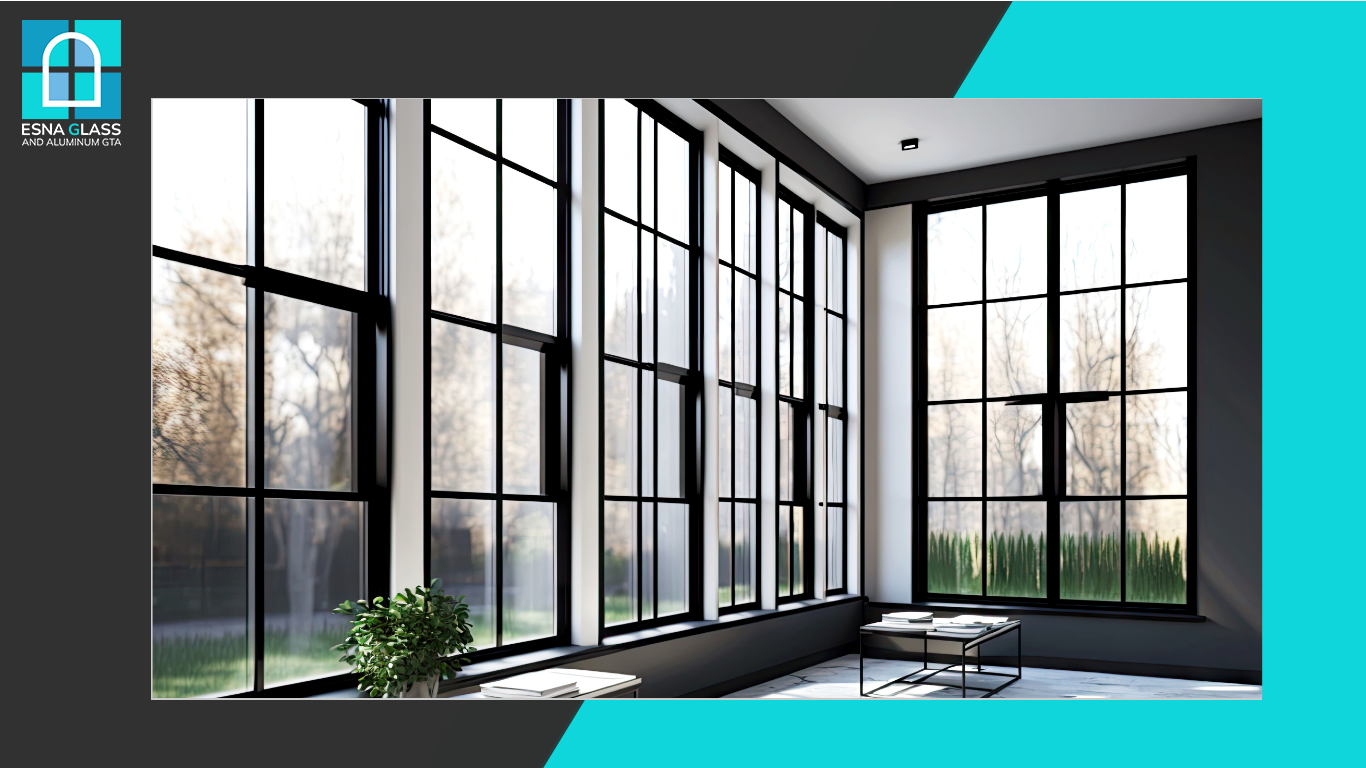
Sliding Glass Partitions
Sliding glass partitions are an excellent choice for optimizing your space, allowing you to create distinct areas within a room without using permanent walls, maximizing the usability of available space while still letting natural light flow through.
Unlike solid partitions, sliding glass partitions let you keep a visual connection between separated rooms while still providing a level of separation.
It can enhance the overall value and marketability of your property, as potential buyers often appreciate modern and functional design elements that offer many benefits.
FAQ
Are glass partition walls expensive?
Generally, the final cost of glass partition walls depends on factors like the type of glass used, the size and style of the wall, the materials used, and so on. Based on Angi, the average cost of glass wall systems ranges from $320 to $620 per linear foot. HomeGuide offers another estimation: the cost ranges from $30 to $90 per square foot, or $1,500 to $9,000 total installed.
However, your location and the complexity of the project play a great role in determining the total price. For instance, if your project requires a complex installation with frosted or mirrored glass, you should expect a higher cost.
What are the benefits of glass partition walls?
- They are cost-effective in the long run, durable, and easy to maintain.
- They can be designed based on your budget.
- Let natural light flow through and be architecturally striking.
- Keep the layout open while defining each area.
- Create a beautiful, bright, and modern workspace.
- They’re versatile and offer more flexibility than solid walls.
- Good at noise reduction and providing desired privacy.
- Enhance employee morale, inspire creativity, and boost productivity.
Bottom Line
If you need a professional to help you install any kind of glass partition wall, don’t hesitate and call us at Esna. We offer 24/7 services and are ready to address all your questions and concerns, regardless of time or date.



